Author:
• Tim McGuinness, Ph.D. – Anthropologist, Scientist, Director of the Society of Citizens Against Relationship Scams Inc.
Article Abstract
The Dunning-Kruger effect is a cognitive bias wherein individuals with limited knowledge or skill in a particular area tend to overestimate their competence.
Named after psychologists David Dunning and Justin Kruger, this phenomenon highlights the discrepancy between perceived and actual proficiency.
It arises from a lack of metacognitive ability and is perpetuated by heuristic processing, self-enhancement tendencies, and environmental feedback loops.
Neurologically, it involves dysfunction in regions associated with self-awareness.
Recognizing the Dunning-Kruger effect is crucial for promoting accurate self-assessment and mitigating the consequences of overconfidence in decision-making and behavior.
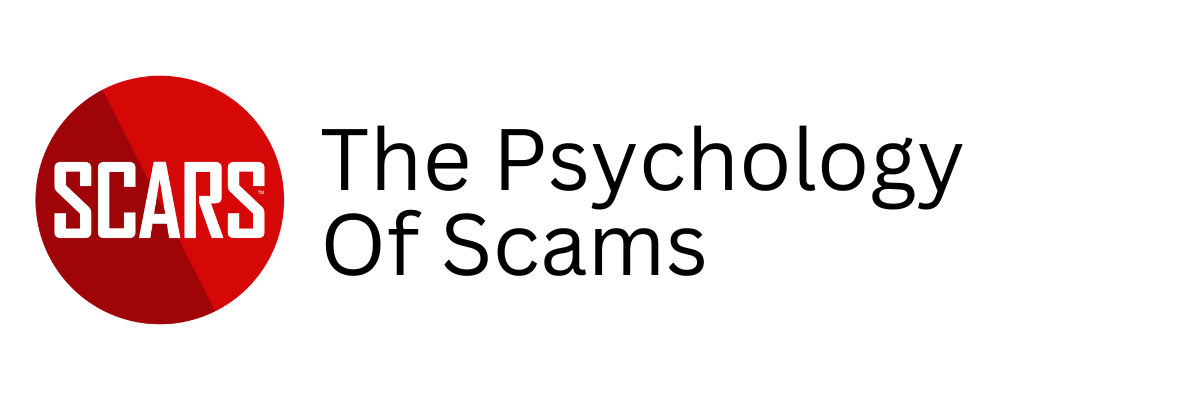
Cognitive Biases: The Dunning-Kruger Effect: Unpacking Its Impact on Victims of Relationship Scams
This article is part of SCARS continuing commitment to helping the victims of scams (financial fraud) to better understand the psychology of scams. In other words, why are victims vulnerable?
The Dunning-Kruger Effect
The Dunning-Kruger effect, a psychological phenomenon first described in 1999 by psychologists David Dunning and Justin Kruger, sheds light on the paradoxical relationship between confidence and competence. It posits that individuals with low ability in a particular domain tend to overestimate their skill or knowledge, while those with genuine expertise may underestimate themselves. This cognitive bias can have profound implications, especially in the context of relationship scams, where victims often find themselves entangled in manipulative situations.
In the case of romantic relationships, the Dunning-Kruger effect can manifest in several ways.
Before and During the Scam
Victims of relationship scams may initially feel a sense of invulnerability, believing they possess the emotional intelligence and discernment to detect deception. This false confidence can stem from various factors, including past relationship successes, perceived astuteness, or simply a lack of awareness regarding the tactics employed by scammers.
As the scam unfolds, victims may exhibit cognitive dissonance, a state of psychological discomfort resulting from conflicting beliefs or actions. Despite mounting evidence suggesting deceit, individuals trapped in the throes of romance scams may cling to the illusion of love and authenticity perpetuated by their perpetrators because of the grooming, manipulation, and control. This reluctance to acknowledge reality, especially as the scam is being discovered, can be exacerbated by the Dunning-Kruger effect, as victims struggle to reconcile their self-perceived perceptiveness with the harsh truth of their exploitation.
After the Scam has been Discovered or Ended
The aftermath of a relationship scam can exacerbate the psychological toll on victims. Upon realization of the deception, individuals experience profound feelings of shame, embarrassment, and self-blame. The stark dissonance between their perceived discernment and the reality of their victimization can inflict lasting emotional scars, trauma and trauma, eroding their sense of self-worth and trust in others.
In combating the detrimental effects of the Dunning-Kruger effect within the context of relationship scams, awareness and education emerge as potent weapons. By gaining a deeper understanding of cognitive biases and their influence on decision-making, individuals can cultivate a more critical mindset, empowering themselves to recognize red flags and protect against manipulation.
What is Going On
The Dunning-Kruger effect is a cognitive bias that arises from a lack of metacognitive ability—the capacity to accurately assess one’s own competence or lack thereof in a particular domain. At its core, this phenomenon involves a discrepancy between an individual’s perceived level of skill or knowledge and their actual proficiency.
In the brain, several mechanisms contribute to the manifestation of the Dunning-Kruger effect. One key factor is the brain’s reliance on heuristic processing, wherein it uses mental shortcuts to make rapid judgments and decisions. When individuals lack expertise in a specific area, they may subconsciously apply these heuristics to assess their competence, leading to overestimation of their abilities.
Additionally, the brain’s natural inclination towards self-preservation can play a role. To maintain a positive self-image and protect against feelings of inadequacy, individuals may engage in cognitive biases such as self-enhancement, wherein they inflate their perceived competence to align with their desired self-concept.
Furthermore, social and environmental factors can exacerbate the Dunning-Kruger effect. Feedback loops, particularly those characterized by positive reinforcement or lack of critical evaluation (in other words ‘encouragement’), can perpetuate misconceptions about one’s abilities. For example, if individuals receive praise or validation for their performance without objective assessment, they may develop an inflated sense of competence.
Neurologically, the Dunning-Kruger effect may involve regions of the brain associated with self-awareness, such as the prefrontal cortex and anterior cingulate cortex. Dysfunction or underactivity in these areas could hinder accurate self-assessment, leading to discrepancies between perceived and actual competence.
The Dunning-Kruger effect illuminates the complexities between perception, competence, and vulnerability in the realm of relationship scams. By acknowledging the inherent limitations of human judgment and embracing humility, individuals can navigate the treacherous waters of romantic entanglements with greater wisdom and discernment, safeguarding themselves against the perils of exploitation and deceit.
How Do Cognitive Biases Make People Vulnerable To Scams, Fraud, and Deception
How do cognitive biases play a role in making people vulnerable and susceptible to scams, fraud, and deception?
Cognitive biases are mental shortcuts that allow people to make quick decisions and judgments based on their past experiences and memories. These biases can be helpful in many situations, as they allow people to process large amounts of information quickly and efficiently. However, they can also make people vulnerable to scams, fraud, and deception.
One reason why cognitive biases make people vulnerable to scams is that they can lead people to make judgments that are not based on evidence or logical reasoning. For example, Confirmation Bias (a major bias that makes people vulnerable) is the tendency to seek out and interpret information that supports one’s preexisting beliefs, while ignoring or dismissing information that contradicts them. This can make people more susceptible to scams that appeal to their beliefs or biases, as they are more likely to believe the scammer’s claims without critically evaluating the evidence.
There are several ways that people can protect themselves from scams, fraud, and deception. One way is to be aware of common cognitive biases and how they can affect decision-making. This can help people to be more mindful of their thought processes and to question their own judgments.
Another way to protect oneself is to be skeptical of claims and offers that seem too good to be true. It is important to carefully evaluate the evidence and to ask questions before making a decision. This can help people to avoid falling for scams that rely on emotional appeals or incomplete information.
It can also be helpful to seek out additional sources of information and to consult with trusted friends, family members, or professionals before making a decision. This can provide a more balanced perspective and help to identify any potential red flags.
Overall, cognitive biases can make people vulnerable to scams, fraud, and deception by leading them to make judgments that are not based on evidence or logical reasoning, and by causing them to make irrational or risky decisions. However, by being aware of these biases and taking steps to protect oneself, people can reduce their risk of falling victim to these types of scams.
Summary
Cognitive biases do make people more vulnerable to scams, fraud, and deception by causing them to ignore warning signs, pay more attention to information that supports their preexisting beliefs, rely on incomplete information, and anchor their decisions to easy and often incorrect information.
By being aware of these biases and making an effort to overcome them, people can be better equipped to avoid falling victim to scams and other forms of deception.
Important Information for New Scam Victims
- Please visit www.ScamVictimsSupport.org – a SCARS Website for New Scam Victims & Sextortion Victims
- Enroll in FREE SCARS Scam Survivor’s School now at www.SCARSeducation.org
- Please visit www.ScamPsychology.org – to more fully understand the psychological concepts involved in scams and scam victim recovery
If you are looking for local trauma counselors please visit counseling.AgainstScams.org or join SCARS for our counseling/therapy benefit: membership.AgainstScams.org
If you need to speak with someone now, you can dial 988 or find phone numbers for crisis hotlines all around the world here: www.opencounseling.com/suicide-hotlines
SCARS Resources:
- Getting Started Right: ScamVictimsSupport.org
- Sextortion Scam Victims: Sextortion Victims Support – The Essentials (scamvictimssupport.org)
- For New Victims of Relationship Scams newvictim.AgainstScams.org
- Subscribe to SCARS Newsletter newsletter.againstscams.org
- Sign up for SCARS professional support & recovery groups, visit support.AgainstScams.org
- Join our Scam Survivors United Chat & Discussion Group facebook.com/groups/scam.survivors.united
- Find competent trauma counselors or therapists, visit counseling.AgainstScams.org
- Become a SCARS Member and get free counseling benefits, visit membership.AgainstScams.org
- Report each and every crime, learn how to at reporting.AgainstScams.org
- Learn more about Scams & Scammers at RomanceScamsNOW.com and ScamsNOW.com
- Scammer photos ScammerPhotos.com
- SCARS Videos youtube.AgainstScams.org
- Self-Help Books for Scam Victims are at shop.AgainstScams.org
- Donate to SCARS and help us help others at donate.AgainstScams.org
- Worldwide Crisis Hotlines: https://blog.opencounseling.com/suicide-hotlines/
Other Cyber Resources
- Block Scam Domains: Quad9.net
- Global Cyber Alliance ACT Cybersecurity Tool Website: Actionable Cybersecurity Tools (ACT) (globalcyberalliance.org) https://act.globalcyberalliance.org/index.php/Actionable_Cybersecurity_Tools_(ACT)_-_Simplified_Cybersecurity_Protection
- Wizer Cybersecurity Training – Free Security Awareness Training, Phishing Simulation and Gamification (wizer-training.com)
-/ 30 /-
What do you think about this?
Please share your thoughts in a comment below!
Do You Need Support?
Get It Now!
SCARS provides the leading Support & Recovery program for relationship scam victims – completely FREE!
Our managed peer support groups allow victims to talk to other survivors and recover in the most experienced environment possible, for as long as they need. Recovery takes as long as it takes – we put no limits on our support!
SCARS is the most trusted support & education provider in the world. Our team is certified in trauma-informed care, grief counseling, and so much more!
To apply to join our groups visit support.AgainstScams.org
We also offer separate support groups for family & friends too.
Become a
SCARS STAR™ Member
SCARS offers memberships in our STAR program, which includes many benefits for a very low annual membership fee!
SCARS STAR Membership benefits include:
- FREE Counseling or Therapy Benefit from our partner BetterHelp.com
- Exclusive members-only content & publications
- Discounts on SCARS Self-Help Books Save
- And more!
To learn more about the SCARS STAR Membership visit membership.AgainstScams.org
To become a SCARS STAR Member right now visit join.AgainstScams.org
To Learn More Also Look At Our Article Catalogs
Scam & Crime Types
More SCARS
- ScamsNOW Magazine – ScamsNOW.com
- ContraEstafas.org
- ScammerPhotos.com
- AnyScam.com – reporting
- AgainstScams.org – SCARS Corporate Website
- SCARS YouTube Video Channel


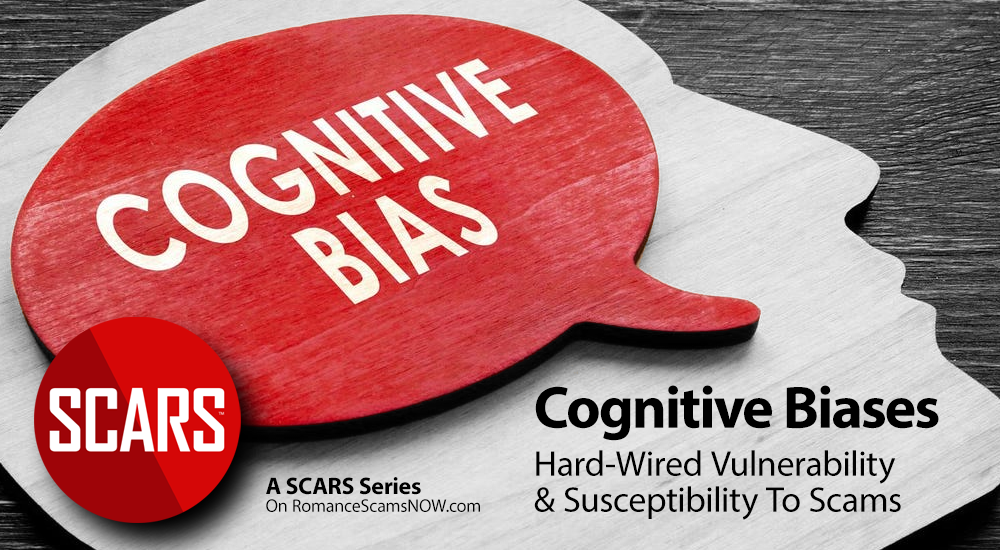
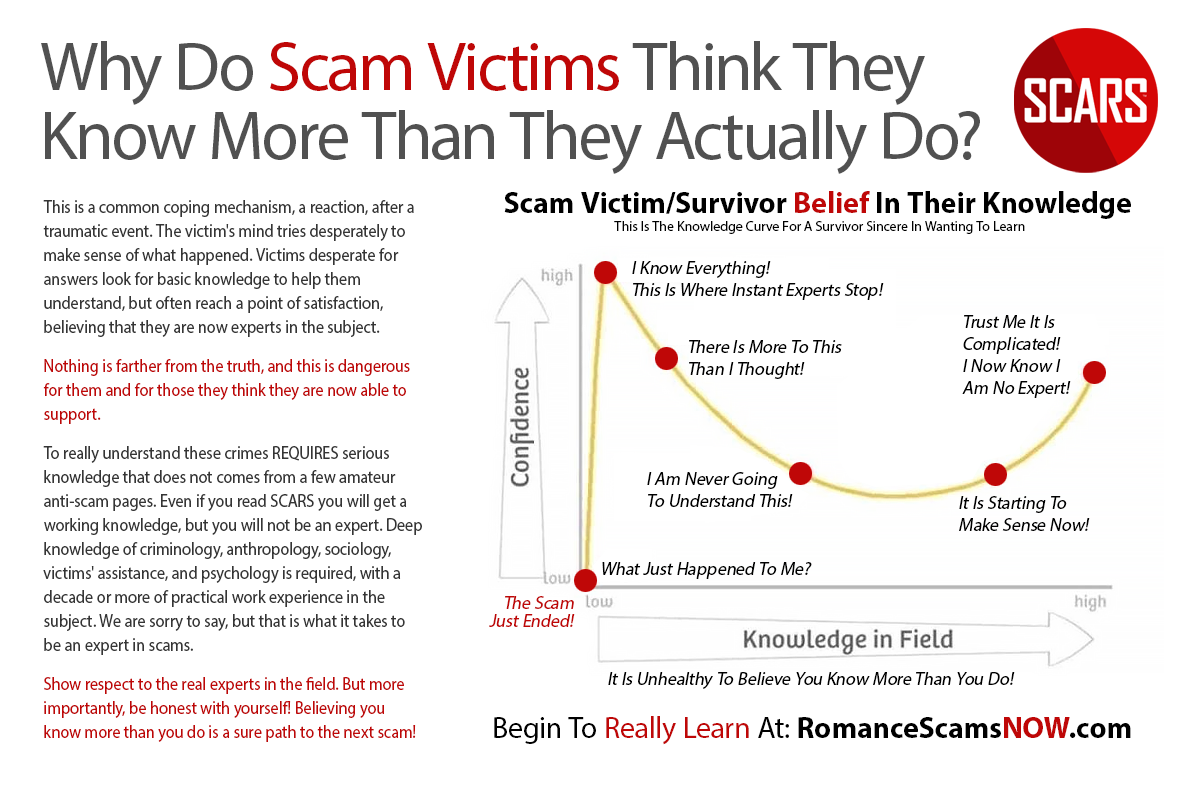


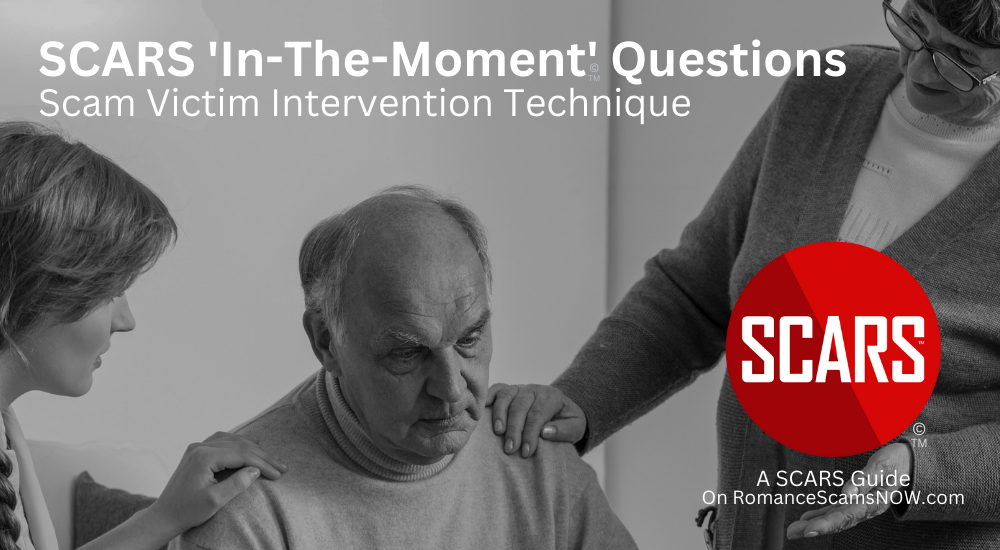
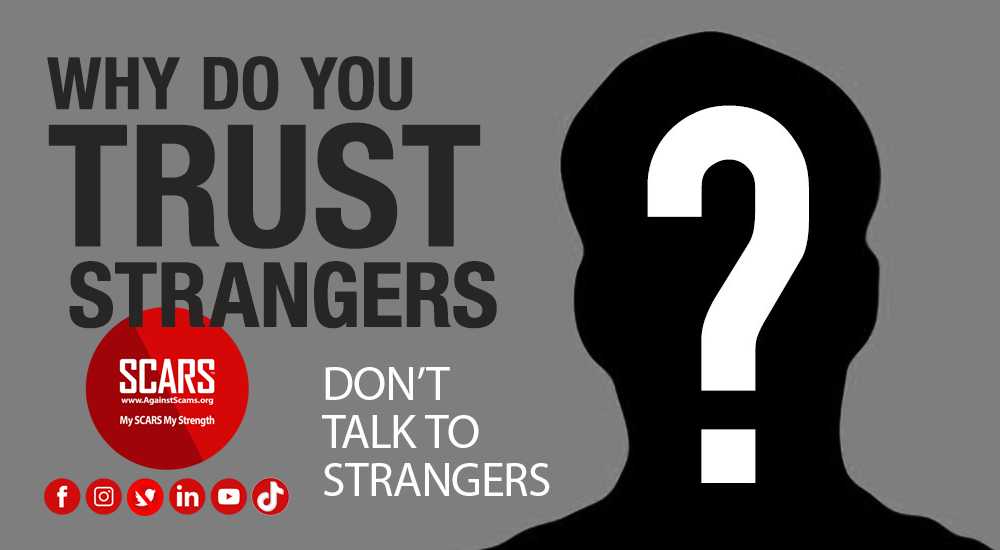











Leave A Comment